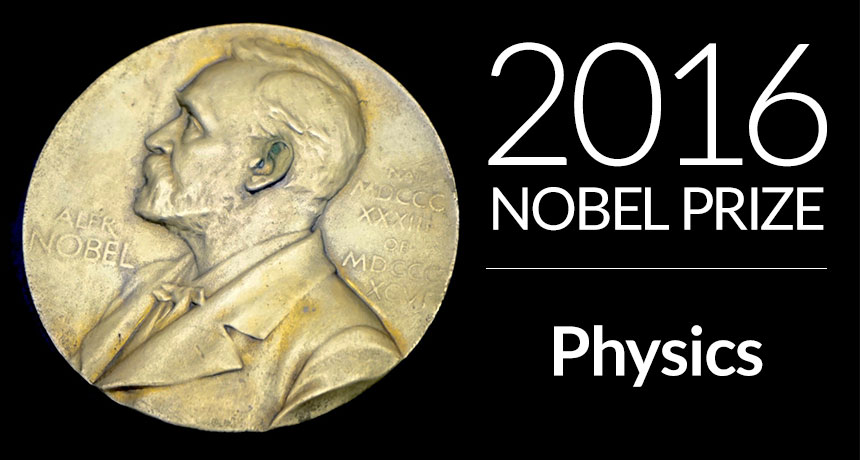Trio wins physics Nobel for math underlying exotic states of matter

The 2016 Nobel Prize in physics is awarded for discoveries of exotic states of matter known as topological phases that can help explain phenomena such as superconductivity.
The prize is shared among three researchers: David J. Thouless, of the University of Washington in Seattle, F. Duncan M. Haldane of Princeton University and J. Michael Kosterlitz of Brown University. The Royal Swedish Academy of Sciences announced the prize October 4.
At the heart of their work is topology, a branch of mathematics that describes steplike changes in a property. An object can have zero, one or two holes, for example, but not half a hole. This year’s Nobel laureates found that topological effects could explain behaviors seen in superconductors and superfluids. “Like most discoveries, you stumble onto them and you just come to realize there is something really interesting there,” Haldane said in a phone call during the announcement.